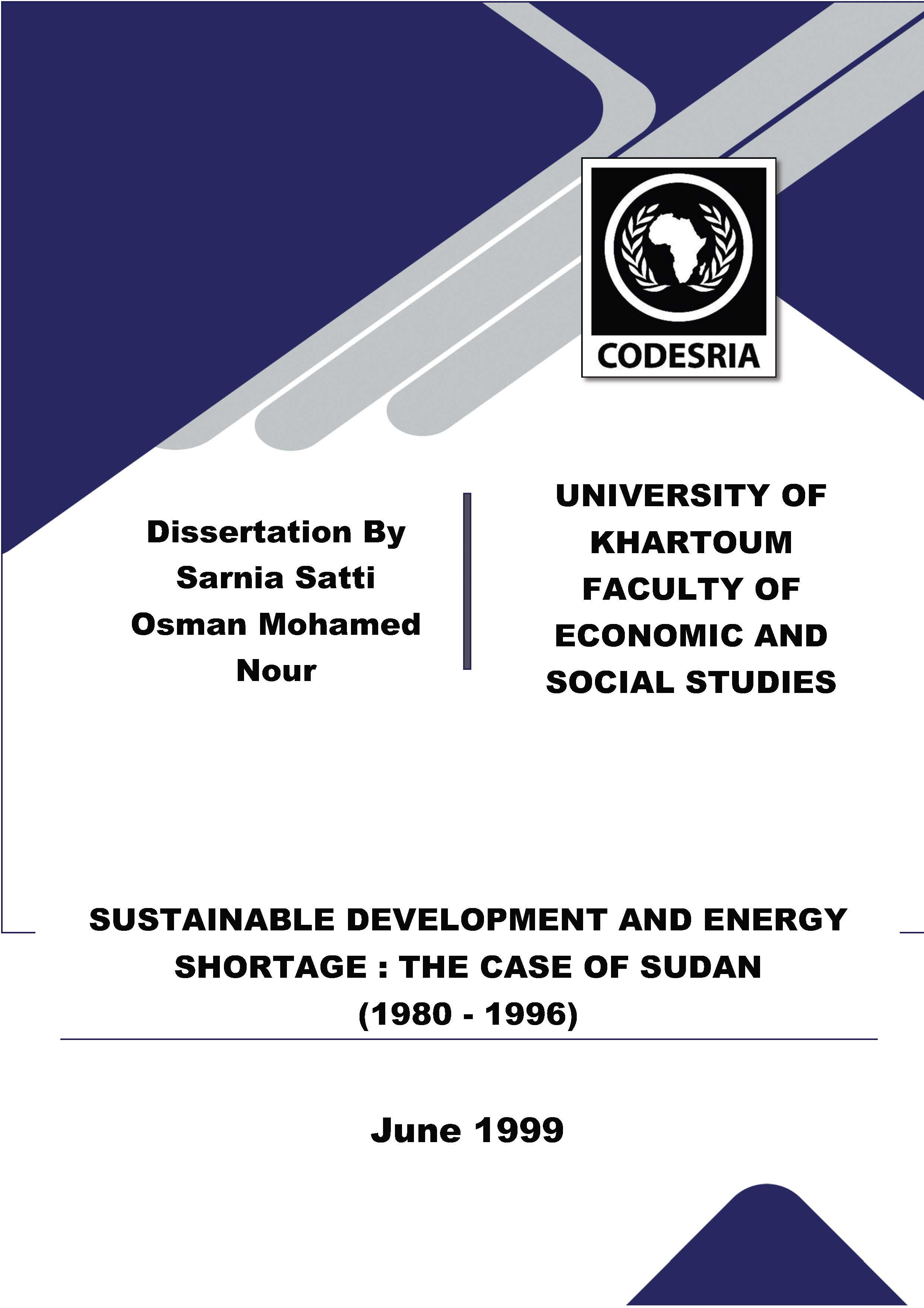SUSTAINABLE DEVELOPMENT AND ENERGY SHORTAGE: THE CASE OF SUDAN (1980 - 1996)
Mots-clés :
DEVELOPMENT, ENERGY SHORTAGE, SUDANSynopsis
Energy is consi~ered the driving force of all hmnan activities since it is an indispensable input in the key productive sec~ors which provide many individual and collective needs. In the context of sustainable development strategy, energy issues are critical partially because economic development has been linked to growth in· energy suppl y consmnption, and also because the enviromnental impacts of energy use are serions and hard to manage. In the Sudan, during the last few decades,· energy shortage in the productive sectors of the economy has significantly contributed to Sudan'spresent economic crisis and resulted in poor economic perfonnance. Moreover, the patten1· and stn1cture of energy demand (consmnption) in
Sudan, inflicted a considerable environmental damage. The methodological àpproach of the present study is descriptive,
analytical and empirical in nature. The statistical and mathematical analysis is based. on (1) the ordinary least squares technique and thedouble logarithmic demand fimction to estima.te energy demand fimction, price and incarne elasticities at both Macro ( aggregate) · and Micro (sectoral) levels .. (2) Simultaneous equation techniques to examine the importance of endogenous price assmnption in the detennination of oil import demand model, the two-stage least squares technique is used to verify the assumption that the demand for oil imports in the Sudan during study period is significantly constrained by the availability of foreign exchange receipts. The study used the relevant computer application programmes (e.g. SPSS for windows programmes).






